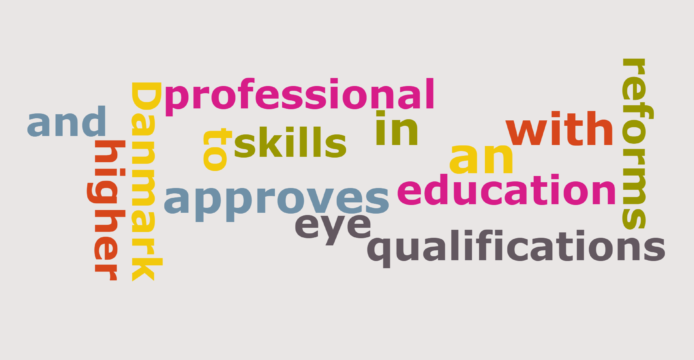The Danish government has recently reached a landmark agreement to reform higher education and professional qualifications due to be implemented gradually towards 2030.
The new reforms will target specifically professional bachelor education programmes (long-cycle) and the academy profession programmes (short-cycle) which are non-academic higher education and training routes within the Danish education system.
The reform has been adopted to improve the quality of education programmes such as the pedagogue training programme as part of a comprehensive reform plan for the whole education system. To quote the official document announcing the reform ‘nurses, educators and computer scientists must be strengthened, and students must be better prepared for the reality that awaits them after graduation,’ demonstrating that the aim is to reform the education model of Denmark in anticipation of growing need in these fields where manpower is already below the necessary level.
In order to improve the quality of the education programmes and make them more attractive for students, the reform prioritises about DKK 2 billion annually to the education programmes, ensuring – among other things – that students shall receive ‘more lessons, more feedback, instruction in smaller classes, more practice-based instruction or workplace and simulation instruction as well as enhanced opportunities for lifelong learning and continuing professional development.’ Higher contact hours have been proven in multiple studies to lead to improved academic and professional performances, making this a crucial gain for students of practice-oriented professions and the industry as a whole (as graduates will be more competent).
As part of the quality enhancement effort, the reform also includes initiatives aimed at improving the work placement during the education programmes. Among other things, this may include:
- Strengthening the cooperation between the training places and educational institutions;
- Improving the connection between theory and practice at the education programmes.
Finally, opportunities for practice-oriented continuing and further education and training will be expanded. From 2030, there will be established new opportunities for tuition-free, practice-oriented continuing and further education and training so graduates can enhance their qualifications later in life. It will be possible to participate full-time while receiving state educational grants or part-time without state educational grants. Furthermore, the reform establishes a new continuing education and training programmes for graduates from professional bachelor education programmes called a professional master programme. It targets complex tasks in the welfare sector and will be placed at level seven in the EQF.

